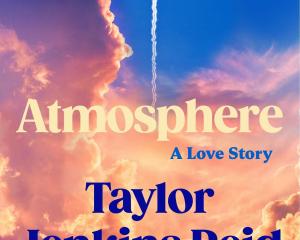
This novel packs a powerful, damaging punch.
Like a gritty amateur film, the action thumps on over a number of hours: an intense setting where sensations emerge from dusty scenes as if from a camera's panning.
Observing and impressionistic, the camera/narrative voice is disembodied, the authorial presence eroded.
Panic takes over with seemingly little interference from the author until, as violence seethes, Sunil Yapa has his say in a stridently cynical assault on human motivations.
This is based on a real event.
We are in Seattle, 1999, venue of the World Trade Organisation's ministerial conference.
The negotiations are widely seen as a free-for-all grab of the Third World.
A crowd of 50,000 gathers around the convention centre, desperate to block the talks in a (mostly) non-violent show of strength.
Many of the protesters are dreamers, not pragmatists, among them John Henry, who aims to help "tear down the borders, to make a leap into a kind of love that would be like living inside a new human skin''.
Victor is a 19-year-old black American sleeping rough.
Deeply despondent, he has spent three years traipsing "this blue-green planet of slums and smog'' but is mystified by human nature and purpose.
His white stepfather, from whom he is estranged, is the head of police in charge of a force of 9000 to hold the protesters at bay.
Confrontation is inevitable, brutality expected.
Police are armed with limitless teargas and stun grenades against protesters passive in self-imposed group lockdown.
This is Sunil Yapa's first novel and it jolts tremendously.
One feels bodily present.
As the action gains pace and tensions explode, Yapa rips apart notions of right and wrong, baring the complexities, where those who are emotionally wrecked can also maim.
Alienation, rage, the brisk slide from victory to despondency, the heart taking a turn as a collective beating heart of violence; themes and motifs here reveal all their mangled, raw forms.
Victor is the main questioning voice, "pierced by clues and impressions gathered from the wind like pollen'' as he wonders how these oft-privileged protesters can claim they represent justice and poor nations.
Looping as if on replay is authority's complete disregard of its responsibility for the Other; how those who produce weapons such as teargas or those who wield the weaponry can then claim dissociation from its effects.
As it ricochets through Victor's head, "care too much and the world will kill you cold''.
• Jessie Neilson is a University of Otago library assistant.











